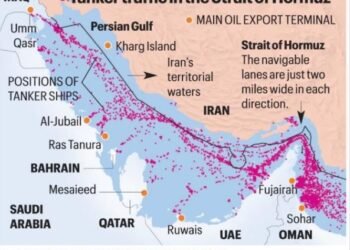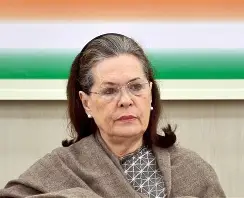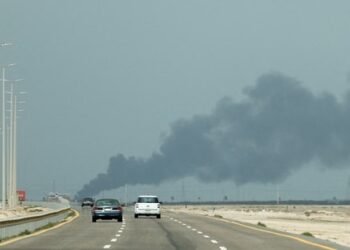With over 226 deaths and thousands displaced, KOHUR demands justice, claiming AFSPA is being used to suppress victims rather than protect them.
BY PC Bureau
April 2, 2025
The Kuki Organization for Human Rights Trust (KOHUR) strongly criticized the Union Government’s selective enforcement of the Armed Forces (Special Powers) Act (AFSPA) in Manipur, alleging systemic bias against the Kuki-Zo community. AFSPA granted sweeping powers to security forces, including the authority to search, arrest, and use force in designated “disturbed areas.”
KOHUR argued that the selective application of AFSPA, particularly the continued exclusion of certain Meitei-majority areas despite documented incidents of violence, reflected a discriminatory stance by the government. The organization highlighted that over 6,000 automatic rifles and 500,000 rounds of ammunition were looted from state armories in these exempted regions, yet the perpetrators remained unapprehended.
“Critical exploration of the genesis of the ethnic cleansing campaign confirmed the direct involvement of organizations such as Arambai Tenggol. However, this so-called ‘cultural organization,’ along with valley-based Meitei militants, who were at the forefront of the genocidal campaign, continued to receive protection and impunity from the government. Instead of holding them accountable, the government engaged in passive negotiations with them. The selective imposition of AFSPA was a deliberate act of appeasement toward the Meitei community. It also reflected the central government’s relentless efforts to use a veneer of legality to present militants as saints, ultimately empowering valley-based Meitei militants to further their campaign,” KOHUR stated.

The ongoing ethnic conflict between the Kuki-Zo and Meitei communities led to significant casualties and displacement. KOHUR reported over 226 deaths, the destruction of more than 200 villages and 360 places of worship, and the forced displacement of at least 41,426 individuals within the Kuki-Zo community. Despite these atrocities, the organization asserted that no substantial legal actions had been taken against those responsible.
ALSO READ: SC Upholds Right to Shelter, Penalizes Prayagraj Authority for Illegal Demolitions
“Kuki Organization for Human Rights Trust firmly believed that the Union Government’s actions were not just acts of negligence but a deliberate attempt to shield the perpetrators of the genocidal campaign against Kuki-Zo Christians. It was evident that the present BJP-led government had abandoned any pretense of protecting ethnic minorities. What was once hidden in disguise was now clear for the world to see. The perpetrators—Meiteis, who belonged to the Hindu community—were being protected, while blistering efforts were being made to weaken the victimized Kuki-Zo people, who belonged to the Christian community, through AFSPA,” KOHUR added.
On March 30, the Ministry of Home Affairs (MHA) declared the entire state of Manipur a ‘disturbed area’ under the Armed Forces (Special Powers) Act (AFSPA), 1958, excluding 13 police stations under five districts. This declaration would be in effect for six months starting from April 1, 2025, unless revoked earlier. The decision followed a review of the prevailing law and order situation in the state.
According to the notification (S.O. 1538(E)), AFSPA would apply across Manipur, except for specific areas under the jurisdiction of 13 police stations across five districts. These police stations included:
Imphal West District: Imphal, Lamphel, City, Singjamei, Patsoi, Wangoi. Imphal East District: Porompat, Heingang, Irilbung. Thoubal District: Thoubal. Bishnupur District: Bishnupur, Nambol. Kakching District: Kakching.
The MHA cited continued unrest and security challenges in Manipur as the primary reason for reinstating AFSPA across the state. The ongoing ethnic tensions, insurgent activities, and sporadic violence contributed to a fragile security environment, necessitating a stronger law enforcement presence.
Under AFSPA, security forces were granted special powers, including the authority to conduct operations, arrest individuals without warrants, and use force in designated ‘disturbed areas’ to maintain public order. While the act had long been a subject of controversy due to concerns over human rights violations, the government argued that it was essential for ensuring stability and countering militant activities.
ALSO READ: TDP Backs Waqf Bill, JD(U) Seeks Retrospective Clause Review
The reimposition of AFSPA in Manipur sparked mixed reactions. While security agencies viewed it as a necessary measure to restore order, civil rights activists and local communities expressed concerns over potential misuse of power. Political parties in Manipur also voiced differing opinions, with some supporting the move for security reasons, while others advocated for alternative peacebuilding approaches.
AFSPA had been in force in various parts of Manipur for decades, with periodic reviews leading to its partial withdrawal in some regions. In recent years, the state government had removed AFSPA from select urban areas to ease tensions and promote peace initiatives. However, the resurgence of violence prompted the central government to reassess and expand its enforcement.
In the last AFSPA notification for Manipur issued on November 14, 2024, six police stations across five districts were declared ‘disturbed’ until March 31, 2025, just one-and-a-half months after being included in the list of 19 police stations initially kept out of AFSPA’s purview. Notably, this notification was issued directly by the Centre, departing from the usual practice of the state government declaring ‘disturbed areas.’
KOHUR urged the government to immediately reassess AFSPA’s implementation to ensure equitable enforcement across all communities in Manipur. They called for decisive action against those perpetuating violence and stressed the need for impartiality and justice to restore peace in the region.













